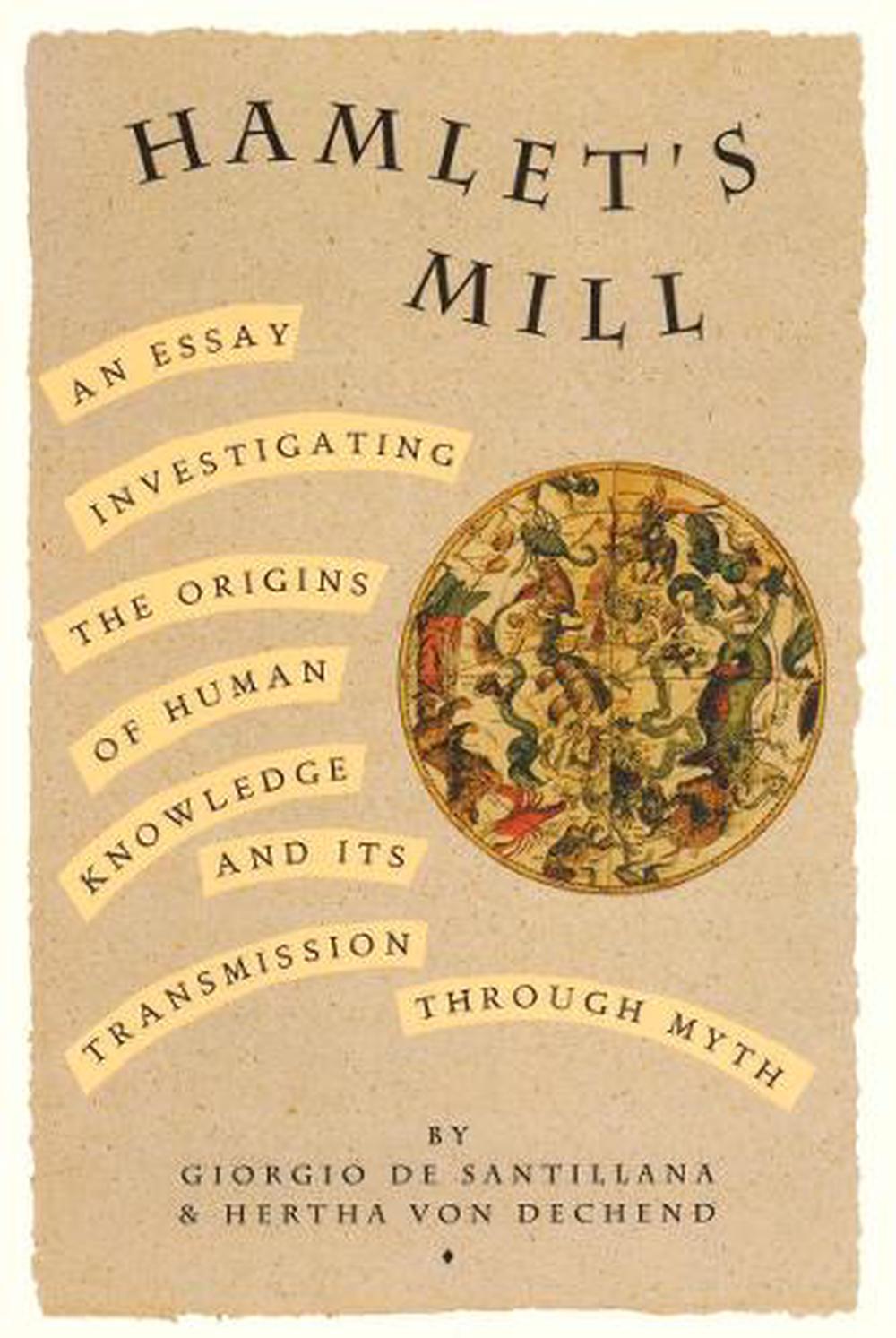
Hamlet's Mill
by Giorgio De Santillana, Hertha Von Dechend
A work of scientific and philosophical inquiry, in which, the authors track world myths to a common origin in early man's descriptions of cosmological activity, arguing that these remnants of ancient astronomy, suppressed by the Greeks and Romans and then forgotten, were really a form of pre-literate science.
Paperback
English
Brand New
Publisher Description
"A book wonderful to read and startling to contemplate....both the history of science and the reinterpretation of myths have been enriched immensely."—Washington Post
A seminal work of scientific and philosophical exploration. Ever since the Greeks coined the language we commonly use for scientific description, mythology and science have developed separately. But what if we could prove that all myths have one common origin in a celestial cosmology? What if the gods, the places they lived, and what they did are but ciphers for celestial activity, a language for the perpetuation of complex astronomical data?
Drawing on scientific data, historical and literary sources, the authors argue that our myths are the remains of a preliterate astronomy, an exacting science whose power and accuracy were suppressed and then forgotten by an emergent Greco-Roman world view. This fascinating book throws into doubt assumptions of Western science about the unfolding development and transmission of knowledge. This is a truly seminal and original thesis, a book that should be read by anyone interested in science, myth, and the interactions between the two.
Author Biography
Giorgio de Santillana was born in Rome and moved to the United States in 1936. In 1942, he became an Assistant Professor at the Massachusetts Institute of Technology, where he would spend the remainder of his academic career.Hertha Von Dechend was born in Heidelberg in 1915. She began her career as an anthropologist in 1934 at the Frobenius Institute. Between 1960 and 1966, she regularly taught and researched at the Massachusetts Institute of Technology.
Review
"A book wonderful to read and startling to contemplate. If this theory is correct, both the history of science and the reinterpretation of myths have been enriched immensely." (Washington Post Book World)
Kirkus UK Review
This wonderful work of insight, erudition and scholarship has done more than any other to convince me that we have forgotten an episode of high civilization deep in prehistory. This revolutionary thesis states that a precise technical language, linked to an accurate and sophisticated system of observational astronomy, has somehow found its way into many of the oldest myths of mankind. Since the same 'technical terminology' crops up in myths from many different parts of the ancient world not in contact in historical times (for example ancient Egypt and ancient Mexico), and since we can rule out independent invention of this highly complex and idiosyncratic language, it must have originated with a common 'source' civilization that historians have not yet identified but which distributed a strong influence around the globe. Review by Graham Hancock, whose books include 'Heaven's Mirror: Quest for the Lost Civilization' (Kirkus UK)
Long Description
"A book wonderful to read and startling to contemplate....both the history of science and the reinterpretation of myths have been enriched immensely."-- Washington Post A seminal work of scientific and philosophical exploration. Ever since the Greeks coined the language we commonly use for scientific description, mythology and science have developed separately. But what if we could prove that all myths have one common origin in a celestial cosmology? What if the gods, the places they lived, and what they did are but ciphers for celestial activity, a language for the perpetuation of complex astronomical data? Drawing on scientific data, historical and literary sources, the authors argue that our myths are the remains of a preliterate astronomy, an exacting science whose power and accuracy were suppressed and then forgotten by an emergent Greco-Roman world view. This fascinating book throws into doubt assumptions of Western science about the unfolding development and transmission of knowledge. This is a truly seminal and original thesis, a book that should be read by anyone interested in science, myth, and the interactions between the two.
Details

